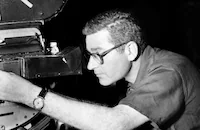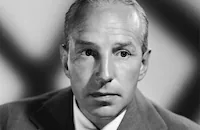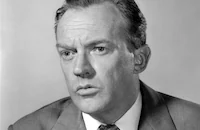Peyton Place

Brief Synopsis
Cast & Crew
Mark Robson
Lana Turner
Lee Philips
Lloyd Nolan
Arthur Kennedy
Russ Tamblyn
Film Details
Technical Specs

Synopsis
As stranger Michael Rossi drives into the small New England town of Peyton Place in search of employment, he passes a broken-down shack owned by Lucas Cross, a bitter, self-pitying drunk. Lucas' world-weary wife Nellie works as a housekeeper for Constance MacKenzie, the young widow who owns the local dress shop. After a contentious interview, the highly idealistic Michael is hired by Leslie Harrington, the owner of the mill and president of the school board, as the new high school principal. At the end of the school day, Connie's studious daughter Allison, an aspiring writer, meets her best friend, Selena Cross, Nellie's daughter, at Connie's dress shop. When the aloof, proper Connie objects to Allison inviting teenage sexpot Betty Anderson to her upcoming birthday party, Allison bristles. Later, at the party, Betty arrives with Rodney Harrington, her childhood sweetheart and heir to the Harrington fortune. Also attending the party is Selena, her fiancé, Ted Carter, who dreams of becoming a lawyer one day, and Norman Page, a sensitive youth who is dominated by his overbearing, possessive mother. After the roguish Rodney insists on turning out all the lights, Connie returns home and angrily ends the party, thus humiliating Allison. That Sunday after church, Michael visits the MacKenzie house to announce that Allison has been named valedictorian of the senior class. While there, Michael invites Connie, who had previously rebuffed him, to chaperone Allison's graduation dance. Soon after, Harrington calls Rodney into his office and offers him a new car if he will break his date with Betty, whom he calls the "local tramp," and take Allison to the dance instead. At the dance, Betty, peeved at Rodney for breaking their date, flirts with him and then slugs him with her purse. After the dance ends, Michael, alone with Connie, kisses her, but she again rejects him. Ted escorts Selena home, and after he leaves, the lecherous, drunken Lucas rapes her. Following graduation, Selena discovers that she is pregnant and turns to Dr. Mathew Swain, the kindly town physician, for an abortion. After Selena confides that Lucas raped her, the outraged Swain threatens him with jail, then forces him to sign a confession and orders him to leave town. When Selena returns home later that night, Lucas drunkenly chases her through the woods in revenge. After losing Lucas, Selena trips and falls down a hill, causing her to miscarry. To protect Selena's reputation, Doc Swain performs an appendectomy on her. At the Labor Day picnic, Betty and Rodney go swimming in the nude, and then Betty dares Rodney to defy his father and marry her. Norman and Allison also go for a swim in the lake, and when the town busybody spots two young people swimming naked, she assumes that they are Norman and Allison and spreads rumors about them. Michael, meanwhile, has invited Connie for a drive in the country, but when Michael tries to kiss her at evening's end, Connie lashes out that men are only interested in sex. Later Connie hears the rumors about Allison, and refuses to believe her daughter's denials. In a moment of anger, Connie coldly reveals that Allison was illegitimate. Stunned, Allison runs upstairs and discovers that Nellie, unable to deal with Selena's rape, has hanged herself. Soon after, Rodney informs his father that he and Betty are married. Harrington wants the marriage annulled, but Rodney assures his father that he has always loved Betty and has decided to quit college in order to take a job in the mill and support his wife. No longer able to tolerate life in Peyton Place, Allison boards a bus bound for New York. With the bombing of Pearl Harbor, the boys of Peyton Place go off to war, and Rodney asks his father to take care of Betty. Later, when word comes that Rodney was killed in combat, Harrington reconciles with Betty and welcomes her to the family. At Christmastime, Connie visits Michael to apologize for her abrasive behavior. After she confesses that she was a married man's mistress, Michael embraces her and promises to care for her always. On Christmas Eve, Selena is shocked when Lucas appears in a Navy uniform and assaults her. In a fit of rage, Selena clubs him to death and buries his body in the back yard. At Easter, several naval M.P.'s come looking for the AWOL Lucas. After they leave, Selena breaks down and confesses to Connie, who then notifies the state police. When Selena is charged with murder, Allison returns to Peyton Place to offer her best friend support. On the train home, Allison meets a newly confident Norman, now a sergeant in the military. Fearful of disgracing Ted, Selena begs Doc Swain not to divulge the rape and he reluctantly accedes to her wishes. When the prosecutor accuses Selena of premeditated murder, however, Swain presents Lucas' confession as evidence of self-defense. After Selena is acquitted, Allison, who has shunned her mother throughout the trial, runs after Connie and Michael. At the doorstep of the MacKenzie house, mother and daughter embrace and Michael ushers Connie, Allison and Norman home.

Director

Mark Robson
Cast

Lana Turner
Lee Philips

Lloyd Nolan

Arthur Kennedy

Russ Tamblyn

Terry Moore

Hope Lange
Diane Varsi

David Nelson

Barry Coe

Betty Field

Mildred Dunnock

Leon Ames
Lorne Greene
Robert H. Harris
Tami Conner
Staats Cotsworth

Peg Hillias
Erin O'brien-moore
Scotty Morrow
Bill Lundmark
Alan Reed Jr.
Kip King
Steffi Sidney
Tom Greenway
Ray Montgomery
Jim Brandt
Edith Claire

John Doucette
Alfred Tonkel
Edwin Jerome
Bob Adler
Harry Carter
Crew
L. B. Abbott
Del Armstrong
David Bretherton
James B. Clark
Leonard Doss
Jack Gertsman
Bertram Granger
John Michael Hayes
Adean Henderson
Hal Herman
Don Isaacs
Buddy King
Charles Lemaire
Jim Leppert
Bates Mason
William Mellor
Jim Mitchell
Frank Moran
Ben Nye
Adele Palmer
Fred Perkins
Edward B. Powell
Frank Roberts
Walter M. Scott
Jack Martin Smith
Allan Snyder
Helen Thackery
Helen Turpin
Jerry Wald
E. Clayton Ward
Franz Waxman
Lyle R. Wheeler

Videos
Movie Clip




Trailer
Hosted Intro
Film Details
Technical Specs

Award Nominations
Best Actress
Best Cinematography
Best Director
Best Picture
Best Supporting Actor
Best Supporting Actor
Best Supporting Actress
Best Supporting Actress
Best Writing, Screenplay
Articles
Peyton Place
Tag line for Peyton Place
Everyone was talking about Peyton Place long before Grace Metalious's first novel hit the screen in 1957. The scandalous tale of small-town secrets had transformed the world of publishing while also creating an uproar in more conservative quarters with its tale of rape, seduction, abortion, sadomasochism and illegitimacy. A Rhode Island shop owner had even been arrested for selling it to minors. On film, however, it emerged as a paean to small-town America and a touching tale of young love threatened by small minds, thanks to the clever maneuvering of producer Jerry Wald.
Peyton Place was hardly the first literary work to lay bare the scandals and hypocrisies of small-town life. It had its roots in 19th-century melodramas like East Lynne and Henry Bellamann's popular novel King's Row, filmed by Warner Bros. in 1942. But Metalious's book was the most successful written to that time. Its sales -- over three million copies, mostly in paperback -- changed the way publishers released books. They also wreaked havoc on Metalious's life. Before she sold the book, she had been living in near-poverty in New England. Suddenly she was rich, with a new group of friends determined to party away every cent the book was making. She also never matched the book's success or built on the promise some critics found in her writing. For that matter, she was also haunted by suggestions that the book was largely autobiographical.
Producer Jerry Wald was no stranger to transforming scandalous texts into culturally acceptable movies. As a producer at Warner Bros., he had maintained a file of stories blocked by the censors, some of which -- including Mildred Pierce (1945) and Johnny Belinda (1948) -- he actually managed to get on screen. With Peyton Place, he started by stripping the book of its foul language and some of the more sensationalistic subject matter. Young Norman Page (Russ Tamblyn) remained a mama's boy, but with no suggestion that he reveled in being whipped by his mother. Selena Cross (Hope Lange), pregnant after being raped by her stepfather, lost the child through a miscarriage rather than an abortion. And icy blonde Constance MacKenzie (Lana Turner) thawed to the advances of manly school principal Mike Rossi (Lee Philips) without the benefit of the novel's nude swim. In this, Wald was greatly helped by screenwriter John Michael Hayes, who had learned the fine art of subtlety writing scripts for such classic Hitchcock films as Rear Window (1954) and To Catch a Thief (1955).
Wald was also highly adept at getting the casting choices he wanted. Although Turner's last few films had been flops, she balked at the prospect of playing a woman with an 18-year-old daughter until Wald convinced her that the role could revive her career just as Mildred Pierce revitalized Joan Crawford's career in a similar role. When 20th Century-Fox demanded an actress with some marquee value be cast as Turner's daughter, Allison MacKenzie, he convinced them to go with his gut choice, Diane Varsi, even though she'd never made a movie.
He wasn't a good enough salesman, however, to win permission to shoot the film in Metalious's hometown of Gilmanton, New Hampshire. Stung by speculation that their town was the inspiration for the book's fictional setting, they turned down offers to film exteriors there. The production company then stated the area was too ugly for the film and moved production to the seaside community of Camden, Maine. More than half the town's 3,000 inhabitants ended up doing extra work in the film, though on-lookers and extras alike were disappointed to learn that Turner would be filming all of her scenes in Hollywood.
With so much advanced build-up, Peyton Place had to be a hit. Indeed, its $8 million box office gross made it one of the top films of its year. More surprising, however, was its critical success. Wald and director Mark Robson were credited with finding the solid storytelling at the base of the scandalous novel and using it to pay tribute to small-town American life. In addition, his casting gambles paid off when the film won unparalleled praise for newcomer Varsi, the more experienced Lange and Tamblyn and veterans Arthur Kennedy, Betty Field, Mildred Dunnock and Lloyd Nolan. It also brought Turner the best notices of her career. At Oscar® time, the film scored nine nominations, including Best Picture, Best Director, Turner's only Best Actress nod and four supporting nominations (Varsi, Lange, Kennedy and Tamblyn) -- a record only matched by The Godfather, Part II (1974). Although the film didn't win any awards, its success set Turner on a new career as a star of romantic melodramas.
Off-screen scandal actually added to the box office take. Like her character in Peyton Place, Turner was a single mother trying desperately to shield daughter Cheryl Crane from the harsh realities of life and her own romantic misadventures. Less than two weeks after the Academy Awards® ceremonies, Turner and her daughter made headlines when Crane fatally stabbed her mother's abusive lover, gangster Johnny Stomponato, in an attempt to save Turner from a disfiguring beating. In earlier times, the shocking revelations of Turner's relationship with Stomponato would have ended her career. In the late '50s, however, fans hung on each shocking new revelation and flocked to see Peyton Place, making it an even bigger hit than expected.
Just as fascinating was the strange career of Turner's on-screen daughter, Diane Varsi. Although she had signed a long-term contract with 20th Century-Fox to win her role in Peyton Place, the rebellious actress soon tired of filmmaking and walked out on Fox and Hollywood after only five films. At the 1959 Academy Awards®, Bob Hope closed the ceremonies with: "Goodnight, Diane Varsi...wherever you are." By then, however, she had settled in Vermont, where she took a few classes at Bennington and raised a young son while trying to find herself. Although she eventually returned to Hollywood and took a few more roles -- most notably as a hippie LSD-crazed congresswoman in the youth film Wild in the Streets (1968) -- she never re-established her career. She died in obscurity in 1992 while only in her fifties, and has remained a figure of mystery in the history of Hollywood and Peyton Place.
The film and its scandal-ridden setting, however, have had a long and successful life. Four years after its release, Fox tried to make lightning strike again with a sequel, Return to Peyton Place (1961). They even asked Varsi to return to play Allison, but she said no, and the role went to Carol Lynley. With only Wald and composer Franz Waxman returning from the original, the sequel flopped. Success returned, however, with the premiere of a television version in 1964, TV's first prime-time soap opera. During its five-year run, the show made stars out of Mia Farrow (Allison), Ryan O'Neal (Rodney) and Barbara Parkins (Betty), while helping Lee Grant make an Emmy-winning comeback after years of blacklisting. The series would then inspire a short-lived daytime soap opera and two television movies. But though viewers have not paid a return visit to the scandalous city since the last TV movie in 1985, the spirit of Peyton Place has lived on in small-screen towns like Twin Peaks and Dawson's Creek and the recent prime-time hit Desperate Housewives.
Producer: Jerry Wald
Director: Mark Robson
Screenplay: John Michael Hayes, based on the novel by Grace Metalious
Cinematography: William Mellor
Music: Franz Waxman
Cast: Lana Turner (Constance MacKenzie), Hope Lange (Selena Cross), Lee Philips (Michael Rossi), Lloyd Nolan (Dr. Matthew Swain), Diane Varsi (Allison MacKenzie), Arthur Kennedy (Lucas Cross), Russ Tamblyn (Norman Page), Terry Moore (Betty Anderson), Barry Coe (Rodney Harrington), David Nelson (Ted Carter), Betty Field (Nellie Cross), Mildred Dunnock (Mrs. Thornton), Leon Ames (Harrington), Lorne Greene (Prosecutor), Erin O'Brien-Moore (Mrs. Page).
C-157m.
by Frank Miller

Peyton Place
Quotes
All men are alike. The approach is different; the result is always the same.- Constance MacKenzie
I kissed you. You kissed me. That's affection, not carnality. That's affection, not lust. You ought to know the difference.- Michael Rossi
This job starts at 3,000 a year.- Mr. Harrington
Then we're all wasting our time. That's only $5 a week more than I was making as a teacher, Mr. Harrington- Michael Rossi
But this offers you security -- a long term contract.- Mr. Harrington
Guaranteed poverty is not security.- Michael Rossi
A person doesn't always get what she deserves. Remember it. If there's anything in life you want, go and get it. Don't wait for anybody to give it to you.- Mrs. Thornton
Trivia
Notes
The film's title card reads "Jerry Wald's Production of Peyton Place." According to the preview reviews, the film originally ran 166 minutes. The picture begins with a voice-over narration spoken by "Allison MacKenzie" explaining that in Peyton Place, time is told by the seasons. Allison then briefly describes her life in New York. According to a September 1956 Daily Variety news item, Twentieth Century-Fox bought Grace Metalious' novel for $100,000. The novel, which had been an enormous best-seller, had been deemed by many of the studios as too sensationalistic to film, according to a December 23, 1957 Newsweek article.
John Michael Hayes's screenplay toned down the novel's more lurid elements. In Metalious' book, "Selena" was raped several times by her stepfather. Rather than suffering a miscarriage, as in the film, Selena has an abortion in the novel. In Metalious' version, "Constance" has a torrid affair with "Michael" and "Allison" loses her virginity in New York with her literary agent. Instead of marrying "Rodney Harrington" as she does in the film, "Betty" is bought off and sent away by his father. In the film, the evil figure of "Lucas Cross," Selena's stepfather, is actually a composite of the stepfather and the school janitor from the novel. An examination of the MPAA/PCA file on the film contained in the AMPAS Library reveals that the PCA had few criticisms of the screenplay. In letters to the studio, the PCA advised that the use of the word "abortion" be forbidden, and instructed the studio to tone down the brutality in the scene in which Selena clubs her stepfather to death. The studio was also cautioned to temper the rape scene.
Hollywood Reporter news items yield the following information about this production: In April 1957, Pat Hingle was signed to the cast and Edward Byrnes auditioned for one of the male leads. A November 1956 item announced that Joan Crawford was interested in playing the role of Constance. None of these actors appeared in the released film, however. According to studio publicity materials contained in the film's production file at the AMPAS Library, location filming took place in Camden, Belfast, Rockland and Tomaston, ME. The film marked the feature debuts of Diane Varsi and Broadway actor Lee Philips. Fred Perkins, the continuity director at a local Maine radio station, served as dialectician on the film, according to a June 1957 Hollywood Reporter news item. Peyton Place marked the first solo appearance of David Nelson, who previously had only appeared in films and on television with his family. For information about the Nelson family, which included father Ozzie, mother Harriet and brother Ricky, please see entry for the 1951 Universal film Here Come the Nelsons (above).
The picture was nominated for the following Academy Awards: Best Screenplay Based on Material from Another Medium, Best Cinematography, Best Director and Best Picture. Lana Turner was nominated as Best Actress; Arthur Kennedy and Russ Tamblyn for Best Supporting Actor; and Hope Lange and Diane Varsi for Best Supporting Actress. In 1961, Twentieth Century-Fox released a sequel titled Return to Peyton Place, directed by José Ferrer and starring Carol Lynley, Jeff Chandler and Eleanor Parker (see AFI Catalog of Feature Films, 1961-70). Between 1964 and 1969 ABC broadcast Peyton Place, a television series based on Metalious' novel starring Ryan O'Neal and Mia Farrow. From 1972-74, NBC broadcast Return to Peyton Place, a daytime serial starring Pat Morrow and Evelyn Scott.

Miscellaneous Notes
Released in United States on Video April 18, 1991
Released in United States Winter December 1957
CinemaScope
Released in United States on Video April 18, 1991
Released in United States Winter December 1957















